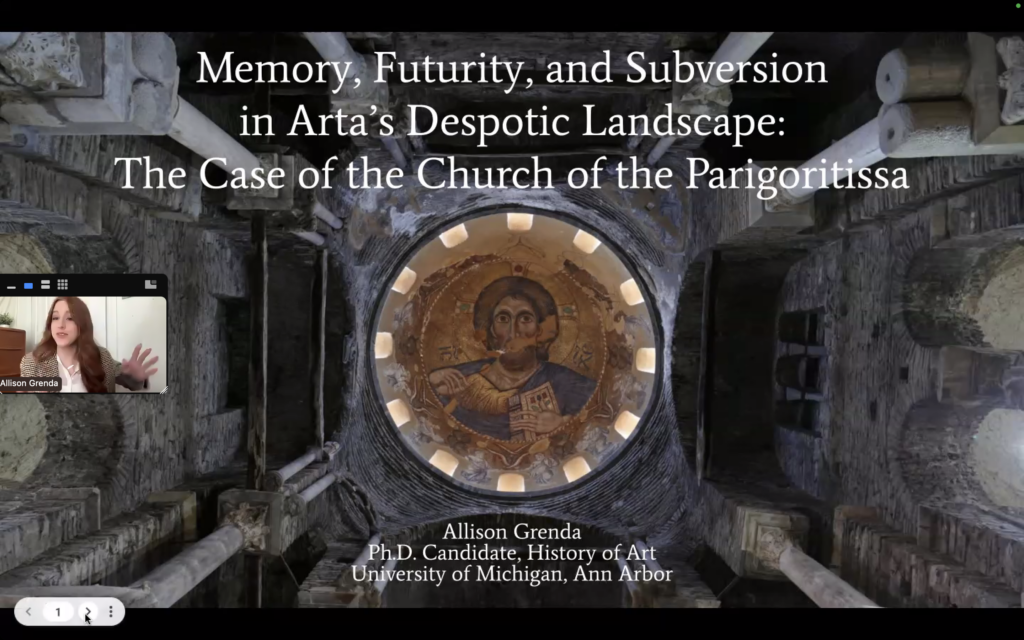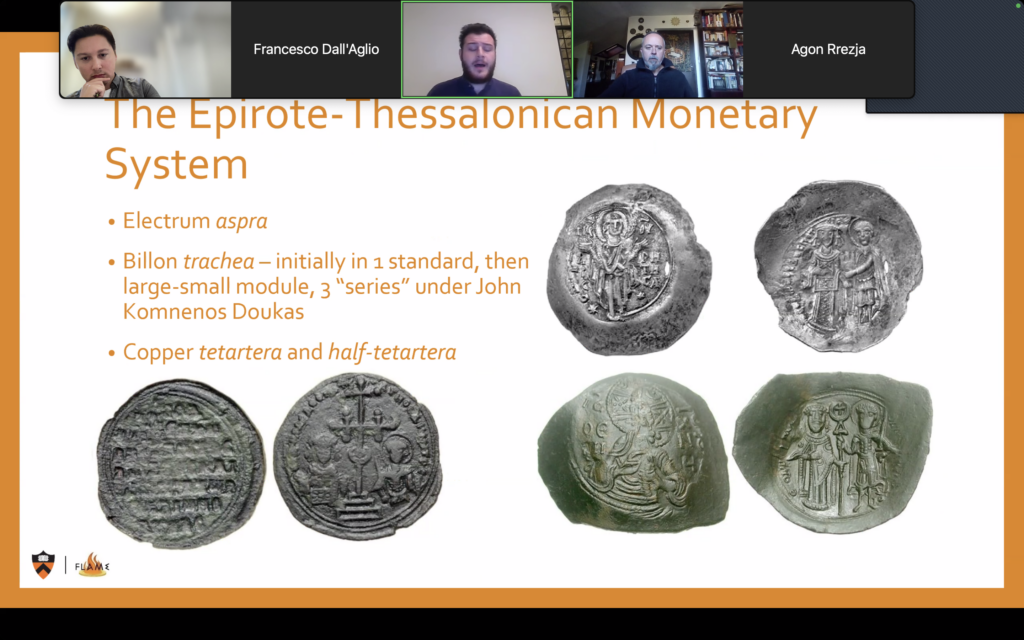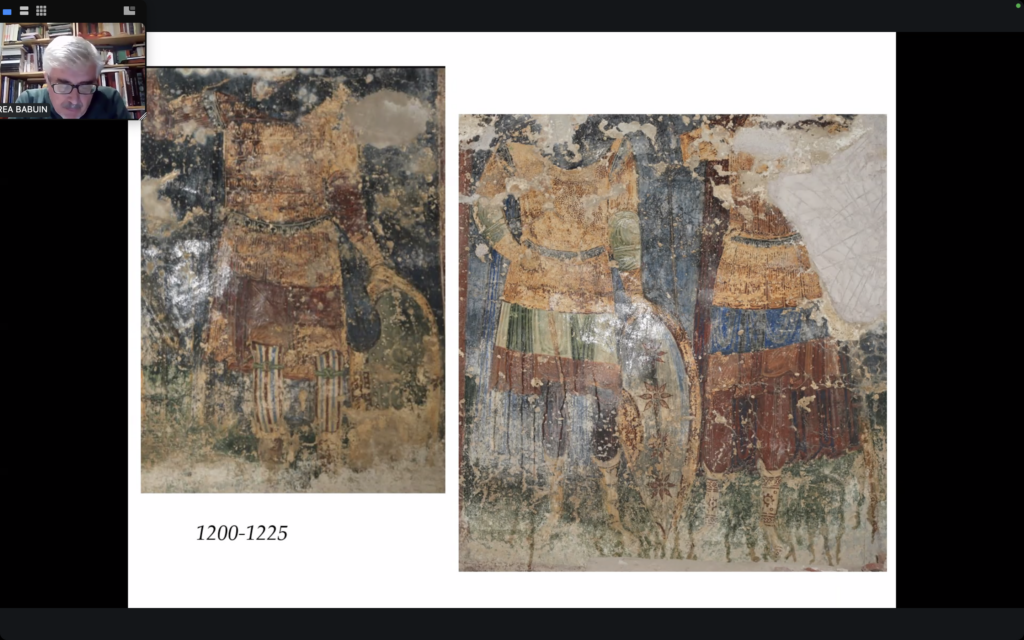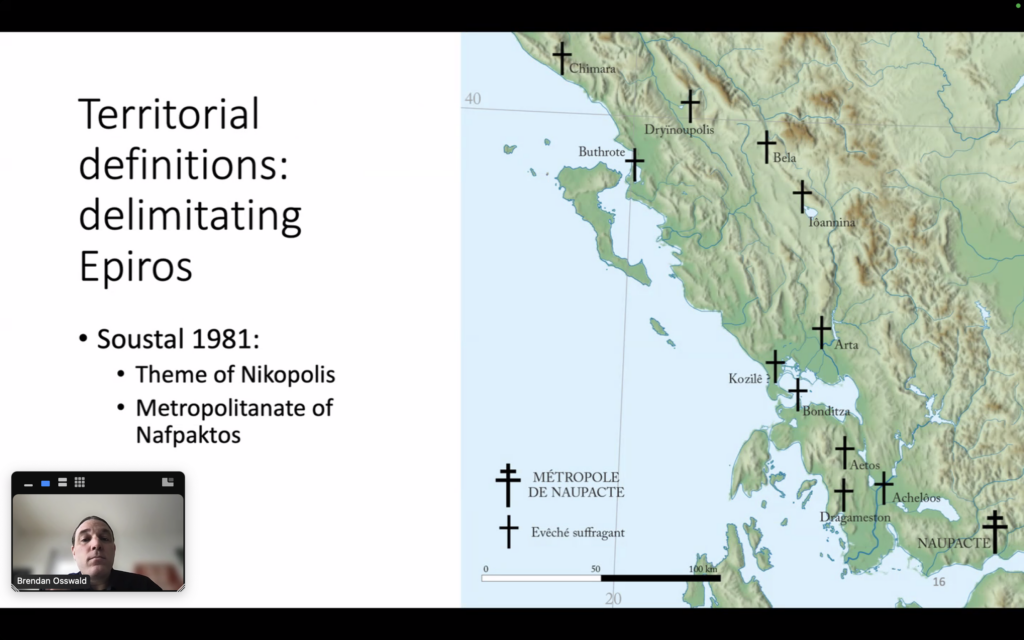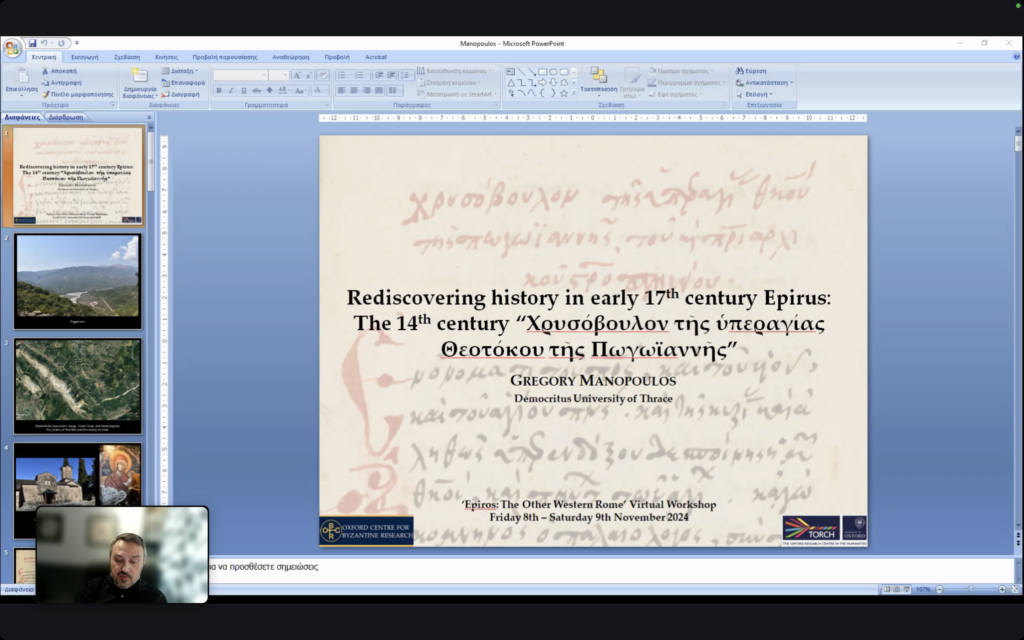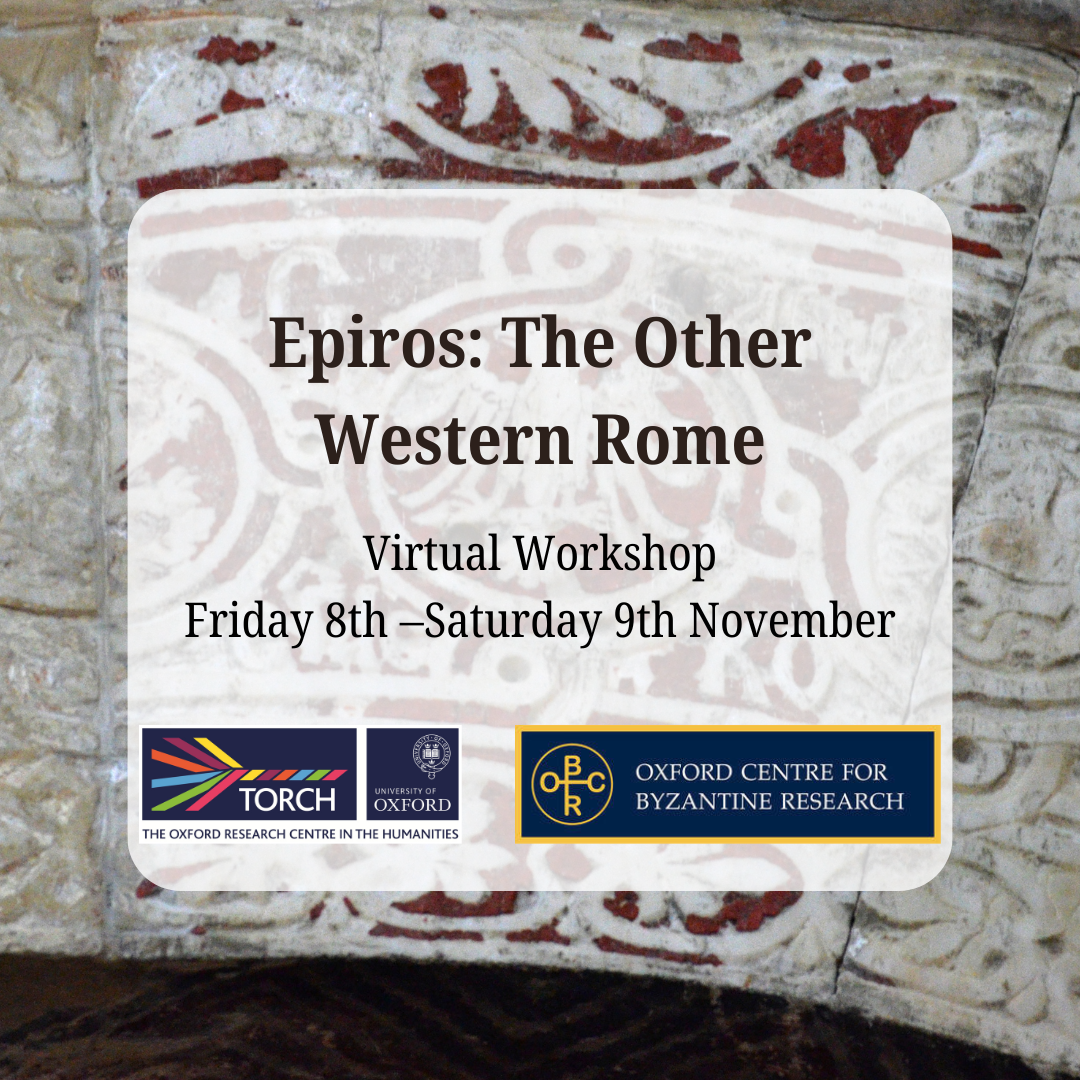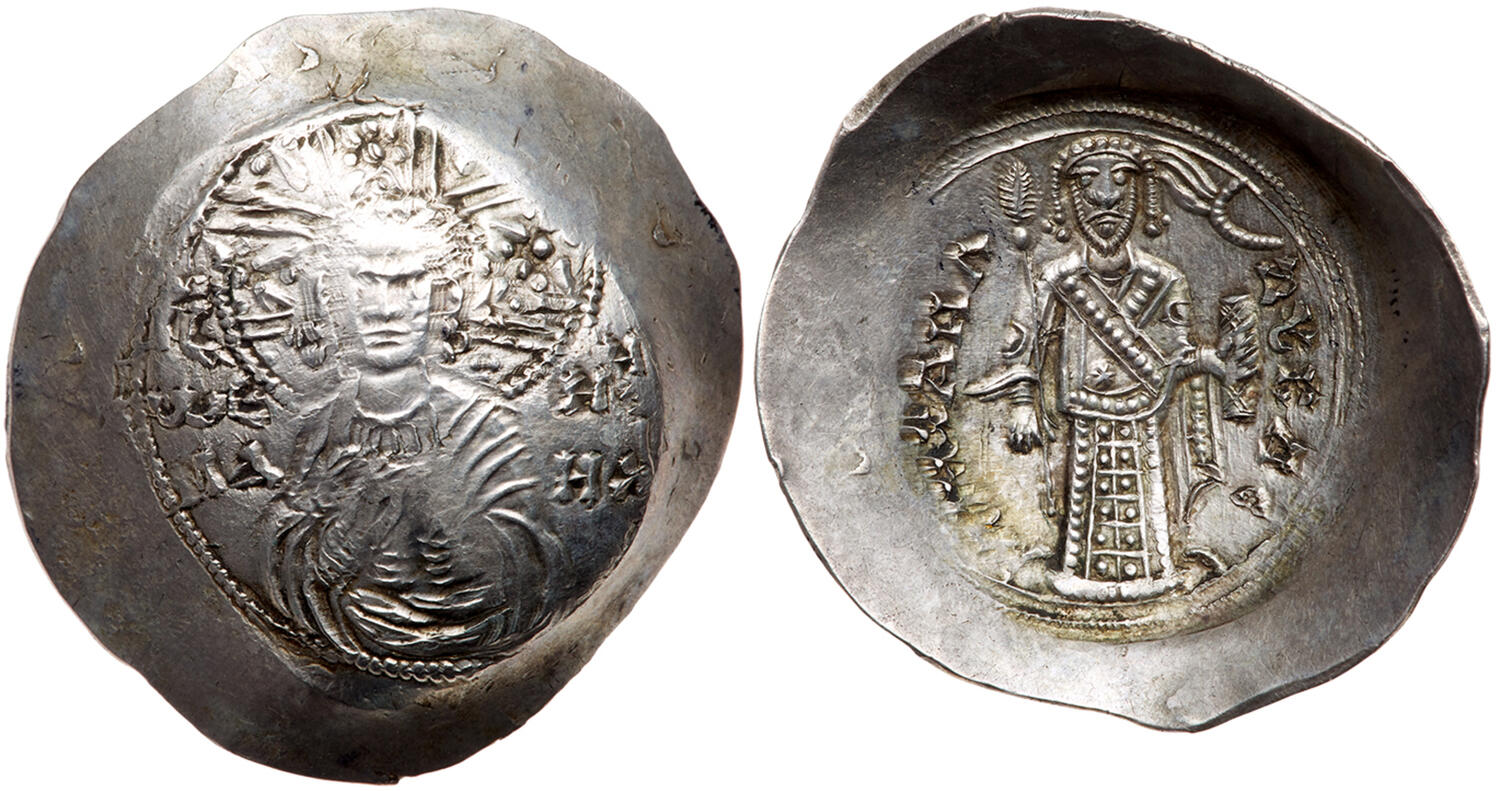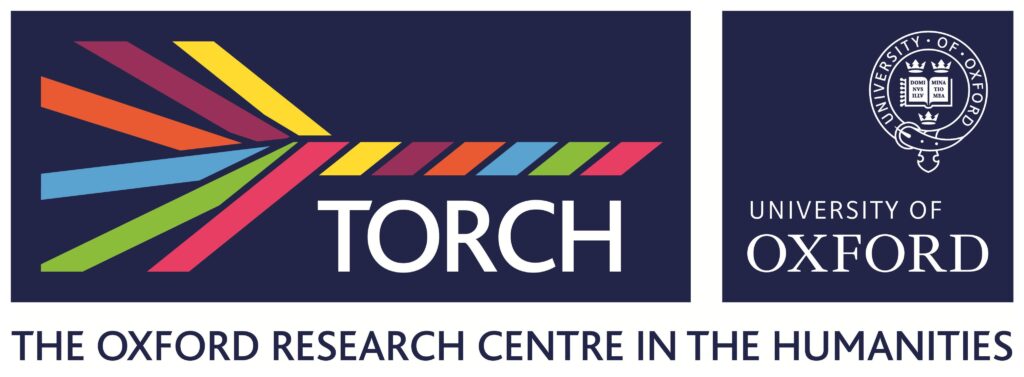This workshop was made possible through the generous support of the Oxford Centre for Byzantine Research (OCBR) and The Oxford Centre for Research in the Humanities (Torch).
For close to two and a half centuries, the state of Epiros represented a crucial node for an alternative socio-political network of the Balkans. Founded by the illegitimate son of the union of three imperial Byzantine dynasties, at its largest extent Epiros assumed the title of ‘Empire of the Romans’ and campaigned to the very walls of Constantinople. Defeated but not destroyed in 1230, Epiros persisted in its autonomy through the strength of its ties. Bound by either marriage or confession to Italians, Serbians, Bulgarians, Vlachs, Albanians, and more, Epiros continued to exist as an alternate, moved Byzantium that understood its reunification of the former provinces of the Byzantine Balkans to be a retaking and preservation of ‘the West’, a term with which it also self-identified. Transitioning in the fourteenth century to Albanian and later Italian rule, Epiros’ role as a centre of multi-ethnic exchange and independence created a legacy that exists today.
This workshop gathers leading research across multiple fields to discuss the places and peoples which were either part of or engaged with this Epirote Western Rome. Following two successful panels at Kalamazoo and Leeds International Medieval Congresses, supported by the Oxford Centre for Byzantine Research, this hybrid workshop calls upon scholars to present from multiple specialisms. One of the reasons Epiros and its neighbours in the period of the Principality, Empire, and Despotate have remained so poorly studied has been the reliance upon century-old editions and a reluctance to publish in translation. Therefore, we envision not only a proceedings volume from this workshop but additionally the creation of a ‘sourcebook’ for Epirote Western Rome and its surrounding states which presents both papers and the key materials for its study in English translation with critical edition as necessary.
Registration: https://us06web.zoom.us/meeting/register/tZElduCsrjojHNIUxUlJ-geTXPVBuiBkzywn
All timings are in the UK’s Timezone (GMT)
DAY 1 Friday, 8th November 2024
Opening address
9:00 – 9:20
Welcome from Nathan D.C. Websdale and Evan Zarkadas
Session 1 Overview: Epirote Studies
9:30 – 11:00
9:30-10:00 EFSTRATIA SYGKELLOU (Ioannina)
Medieval Epiros: Scientific Studies and Activities in Greece: An Overview
Break – 15 min
10:00-10:30 EVAN ZARKADAS (Independent)
The New Ioannites: The Influx of the Constantinopolitan Refugees in Epiros after 1204 and their Impact on Ioannina
10:30-11:00 BRENDAN OSSWALD (Tübingen)
Late Medieval Epiros: A Spatial Analysis
Session 2
The Dytikoi I: The (Post) ‘Komnenian System’
11:15 – 12:45
11:15-11.45 MICHAEL ANGOLD (Edinburgh)
The Petraliphas in Exile
11:45-12:15 NATHAN D.C. WEBSDALE (Oxford)
In Defence of Epiros: Michael Angelos and Theodore Komnenos Doukas as Traitors, Heirs, and Moses
12:15-12:45 JOHN KEE (Dumbarton Oaks)
Michael Choniates’ Letters to Epiros: John Apokaukos, Theodore Komnenos Doukas, and the end of Byzantine Aegean Greece
Break – 75 min
Session 3 The Dytikoi II: Network Analysis
14:00 – 15:30
14:00-14:30 CHRISTOS TSATSOULIS (N.H.R.F., Athens)
Towards an Edition of a Prosopographical Lexicon for Byzantine Epiros (4th-15th c.): the “Anonymoi” in Epirote Society
14:30-15:00 KATERINA KORRE (Patras)
The Vasilachi case: Observations on the Population Patterns Through the “Archontes” of the Late Medeival Epiros
15:00-15:30 ROBIN SHIELDS (Independent)
Epiros as a Breadbasket? The Extraordinary Barges Agreement of 1436 and the Wider Cereal Trade Between the Tocco Despotate and Ragusa in the mid-15th century
Session 4 The Hybrid Material Culture of Epirote Rome
15:45 – 16:45
15:45-16:10 ANDREA BABUIN (Ioannina)
The Military Element in Late Medieval Epiros through Literary, Historical and Artistic Sources of the Period
16:10-16:40 ALLISON GRENDA (Ann Arbor, Michigan)
Memory, Futurity, and Subversion in Arta’s Despotic Landscape: The Case of the Church of the Parigoritissa
DAY 2 Saturday, 9th November 2024
Session 5
09:00 – 11:00
A Roman ‘Empire’ of the Balkans I: Epiros and Bulgaria
09:00-09:30 FRANCESCO DALL’AGLIO (Bulgarian Academy)
Not Just Klokotnitsa: Relations Between Epiros and Bulgaria between 1207 and 1241
09:30-10:00 KALIN YORDANOV (Bulgarian Academy)
“Totum ducatum di Finepople et quisque eum tenet”: A Key to Solving Theodore Komnenos’ Mysterious Diversion Towards Klokotnitza at the March on Constantinople in 1230?
10:00-10:30 ILIA CURTO PELLE (Princeton)
Circulation Patterns of Epirote-Thessalonican Coinage in the 13th Century
10:30-11:00 SAMUEL E.L. COWELL (Vienna)
Reevaluating the Epirote Coinage of Michael II Komnenos Doukas
Break – 30 min
Session 6
A Roman ‘Empire’ of the Balkans II: Epiros amidst its Neighbours
11:30 – 13:30
11:30-12:00 JACK DOOLEY (Royal Holloway, London)
The Orsini Family in the Aragonese Chronicle of Morea
12:00-12:30 AGON RREZJA (Zagreb)
Albanians Between the Despotate of Epiros and the Latin West in the 13th-14th Centuries
12:30-13:00 GREGORY MANOPOULOS (D.U.Th., Komotini)
Rediscovering history in early 17th century Epiros: The 14th century “Χρυσόβουλον τῆς ὑπεραγίας Θεοτόκου τῆς Πωγωϊαννῆς”
13:00-13:30 GEORGE TEREZAKIS (Tübingen)
The Transformation of Late Byzantine Epiros to Early Ottoman Sanjak of Yanya (Ioannina) (12th-16th c.): Continuity and Change
Session 7
Reassessing Social Life in the Dossier of John Apokaukos, Metropolitan of Naufpaktos (1200–1232)
14:30 – 16:00
14:30-15:00 NICK CHURIK (Princeton)
Everyday Violence in Apokaukos
15:00-15:30 IOANNIS SMARNAKIS (Aegean)
Episcopal Power and Urban Communities in the Early Despotate of Epiros
15:30-16:00 ALEKSANDAR JOVANOVIC (Fraser Valley)
Contract-Loving Communities: Imperial Bureaucratic Practices in the Provincial Society of John Apokaukos
16:00 – 16:15 Closing Remarks

